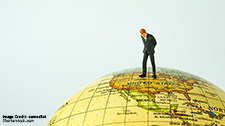North Korea Needs More International Partners to Weather Its Food Crisis

Sangsoo Lee
North Korea has long been one of the most isolated countries in the world, but its isolation became even more extreme amid the pandemic. The country has cut off its few ties and prolonged diplomatic activities with the outside world due to its border shutdown after the outbreak of COVID-19.
In the name of combating the pandemic, Pyongyang has essentially halted all foreign interactions, including state visits, exchanges of delegations, international cooperation, and humanitarian aid. No Western foreign diplomats and humanitarian workers are left in the country, as the last remaining two U.N. staff left the North in March 2021, and the Romanian Embassy, the last European diplomatic presence, also decided to close down in October of that year. Currently, a few foreign diplomats from Russia, China, Cuba, Vietnam, Laos, Mongolia, Syria, and Egypt are still remaining in North Korea as points of contact.
Read this article by Sangsoo Lee at The Diplomat.
Related Publications
-
EU-Thailand FTA Negotiations: IUU Fishing and Human Rights Remain Obstacles
Thailand’s fishing industry, which at its height saw as many as 200,000 migrant workers from neighboring Laos, Myanmar, and Cambodia caught in a brutal system of abuse, withered global criticism […]
-
ISDP Annual Report 2023
ISDP’s Annual Report for the year 2023. We look back on 2023, a year in which tensions and conflicts captured the strategic space in ISDP’s focus areas, making headlines around […]
-
South Korea’s Indo-Pacific Strategy, Atmanirbhar Bharat, and the IPEF: Convergence and Commonality
For some time now, the existing multilateral networks such as those of the United Nations (UN) system have been largely ineffective in providing good global governance and helping create resilience, […]
-
Risk Reduction and Crisis Management on the Korean Peninsula
The situation on the Korean Peninsula is inherently intertwined with the growing instability of the East Asian security environment, where high tensions significantly increase the risk of unintended incidents and armed […]
-
Washington Declaration: Beyond Korea, What it Means for India?
In April 2023, South Korea and the United States released the Washington Declaration to reiterate and upgrade their treaty alliance. In outlining a joint nuclear deterrence strategy, the Declaration reaffirmed […]




